How to Find a Certified Translator Near You: A Guide for Legal and Immigration Needs

Summary:
When you require an authoritative translation for legal or immigration reasons, it is vital to find a certified translator near me. The same goes if you are submitting documents to USCIS or handling court filings. In these situations, a certified translator makes certain that your translations are accurate, linguistically and legally compliant. In this guide, we’ll show you the way to a reliable translator; we’ll tell you what credentials to look for; and we’ll ensure that your legal documents are, well, legally compliant.
1. Why Finding a Certified Translator Near You is Crucial for Legal and Immigration Documents
In our globalized world, translations are often needed for legal and immigration matters. Whether you need to submit a court document or are dealing with other legal matters, having a certified translator is an important step. But why does it matter so much?
Legal and Immigration Compliance
For many legal documents, such as birth certificates, marriage certificates, police records, and other official forms, countries require that these documents be translated and the translations certified.
In the U.S., the U.S. Citizenship and Immigration Services (USCIS) mandates that any document rendered into English by a translator be accompanied by a certification, something the certifier personally signs and also dates. The certifier also states the date the translation was done and goes to great lengths to declare the document legally recognized.
Accuracy and Legal Standards
Professionals who understand legal and immigration terminology are certified translators. When you look for a certified translator near me, you ensure that not only the language but also the specific legal requirements for the document are known by the person you will choose to do the translation. This is vital for legal expert translations that will be used in court or government settings.
The services offered by certified translators will help you:
- Achieve accuracy when translating legal jargon.
- Maintain confidentiality, which is frequently an unavoidable legal requirement.
- Secure certifications of accuracy, which make the translated document hold up in court.
Finding a certified translator near you also increases the likelihood that your documents will be accepted as valid and without delay.
2. How to Search for a Certified Translator Near You
Finding a certified translator near me can be easier than you think. With the right approach, you can find a professional who meets your needs in no time. Here’s how to start your search:
1. Online Translation Directories and Websites
There are several reliable directories and websites where you can search for certified translators. Many professional translation associations offer directories of certified members, such as:
- American Translators Association (ATA): The ATA has a searchable database of certified translators across the United States. You can filter your search by language pair, expertise, and location, ensuring that you find a certified translator near me who meets your needs.
- Certified Translators Listings: Many translation services have online platforms where you can directly search for certified translators who specialize in legal or immigration documents. These platforms often list reviews and certifications, helping you make an informed choice.
2. Local Translation Agencies
You can also locate a certified translator close to you by checking with the translation agencies in your area. Many of these agencies employ certified individuals who are highly trained in translating the types of documents you are likely to need for legal and immigration purposes. These same agencies also employ translators who actually understand and abide by the local laws that govern the sort of documents you need translated. By establishing a rapport with an agency in your area, you are likely to be much better served in both the short and long run.
3. Referrals from Attorneys or Legal Experts
When working with an immigration attorney or a legal case, ask for referrals. Numerous attorneys work with certified translators who specialize in—to no one’s surprise—legal translations. They can provide you with some names and may even liaise with said names to ensure that the documents in question are fully in compliance with all applicable legal requirements.
3. What to Look for in a Certified Translator Near You
Equal creation does not happen for all translators, particularly when legal or immigration documents must be rendered into another language. When I look for a nearby certified translator, I look for certain qualifications and qualities. I know I must ensure these high standards for my critical translations.
Key Qualifications:
- Credentials: The translator must have credentials from a recognized professional body, such as the ATA (American Translators Association). These credentials guarantee that the translator is able to handle legal and immigration documents.
- Legal or Immigration Translation Experience: Seek out translators who possess proven experience rendering a variety of legal documents into English for acceptance by USCIS and other authorities. They become well-versed in the types of documents you might submit as well as the essential criteria your translations must meet to gain the requisite approvals.
- Language Proficiency: The translator must, above all, be fluent in both the source and target languages. They should understand not only the grammar and vocabulary but also the legal lexicon and cultural nuances of both languages. This ensures a high-quality, accurate translation that aligns with legal and immigration standards.
Important Services to Look For:
- Translation with Notarization: Should you require translation with notarization, ensure that the translator provides this service. Translations with notarization are often sought for legal documents, particularly those going to immigration agencies or courts.
- Sworn Translation Services: In some countries, a sworn translator is required to translate documents. If your documents must be translated in this manner, only work with translators that are qualified and authorized to offer such a service.
Customer Reviews and Testimonials:
Read through the assessments and recommendations from past customers to make sure the translator can be depended on and acts in a professional manner. Seek comments that speak to their ability to translate with speed and accuracy, as well as serve the customer with good service. It stands to reason that a translator with glowing reviews is one that you would want to consider hiring.
4. Common Challenges and How to Overcome Them
Locating the appropriate certified translator in my vicinity can appear to be an uphill endeavor, particularly when one is concerned with the tangled matters of law or the sensitive nature of immigration that demand the close attention of a translator even when the documents in question are not in the source language of the translator (which is often the case).
Here are some typical problems that you may encounter and how to deal with them.
1. The Expensive Price Tag of Certified Translations
Especially for those who may require a number of documents to be translated, the price for certified translation services can take quite a toll on the ol’ wallet. But here’s a thought: you can save a considerable sum of money by going with a cheaper translator. But wait; there’s more! You could also save money by sending documents through a lower-priced courier service. Hey, you could even go with the postal service to save yet more dough. Problem is, if you have to send or hand over important documents to immigration or any other legal authority, you’d better meet all their requirements, and that includes using high-quality translation services.
2. Time Constraints
There are some immigration processes—applying for visas or citizenship, for example—that come with tight deadlines attached to them. When you need your translations fast, there is no time to play with. Tell your translator that you need the work done by a certain date, and don’t forget to confirm that the translator can meet your timeline.
3. Nuances Specific to Languages
Some languages present unique problems—especially in the translation of legal or technical terms. For instance, the legal jargon of Spanish is quite different from one Spanish-speaking country to the next. You need translators who not only speak these languages but also understand the legal systems from which and to which these documents will go.
4. Making Sure It’s Right and It’s All There
Before submitting any translation, make sure to double-check for accuracy. Validate that the formatting meets the necessary requirements, whether for USCIS acceptance or other legal processes. If anything is missing or incorrect, it can cause delays or rejections.
Conclusion
Locating a licensed translator close to my home is of critical importance when handling any sort of legal document—especially marriage, divorce, or custody documents; wills or trusts; documented changes to names or statuses; or any sort of immigration ‘papers.’ A licensed translator guarantees the translations are not only viable, but also legally bound. Yet, as I quickly found out, just because a person is a ‘translator’ does not mean they are ‘certified’ in any way.
Take your time to locate the ideal translator, and don’t hesitate to inquire about their qualifications and experience with matters relating to USCIS and legal translation. When you’ve found the right professional to work with, your legal and immigration journey will be much smoother.
Daniel Brooks is a New York City-based writer and content strategist with a deep curiosity for how language shapes connection across cultures. With over ten years of experience crafting digital content for global audiences, Daniel brings a thoughtful and practical voice to the Connected Translations blog.


